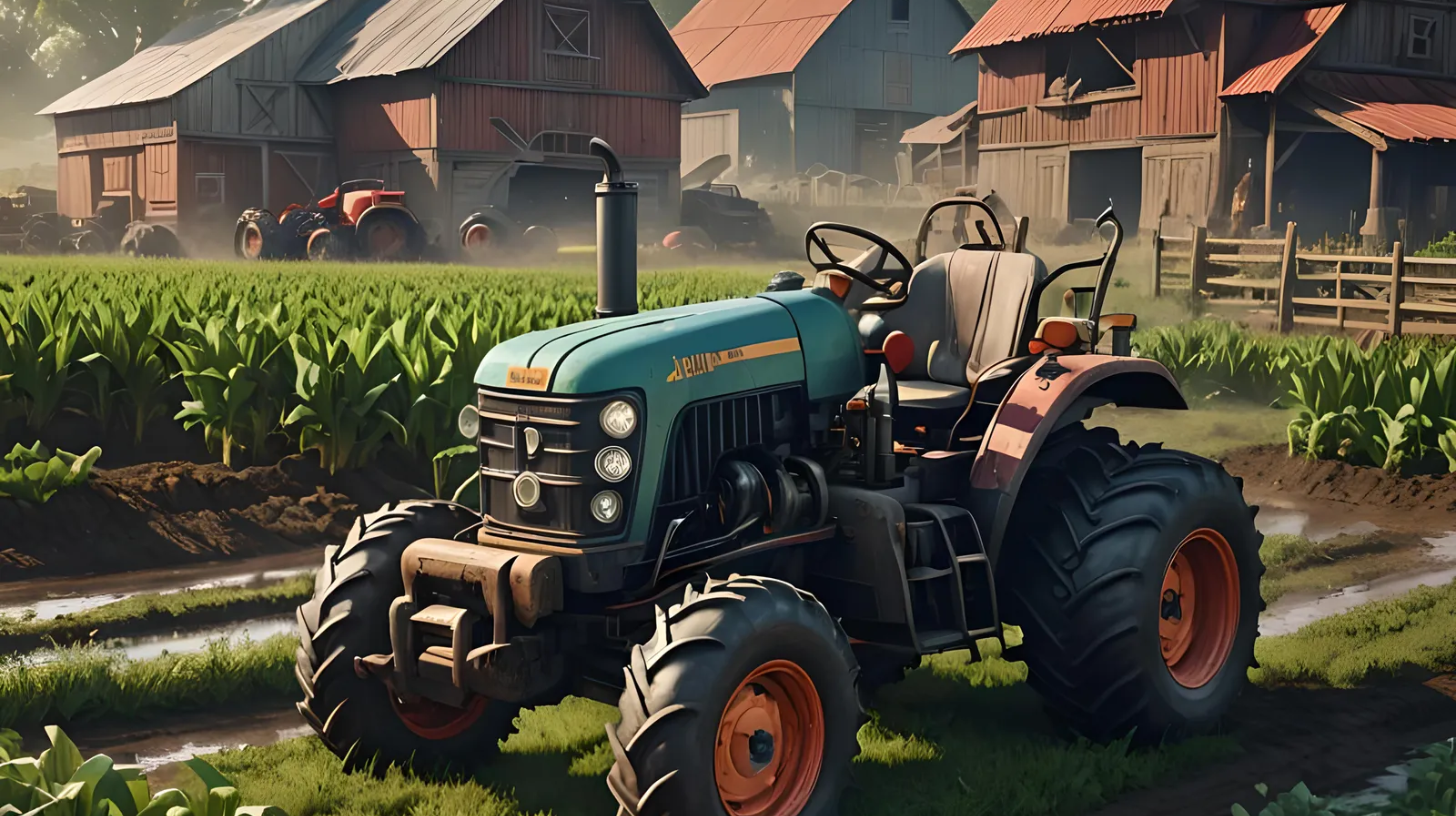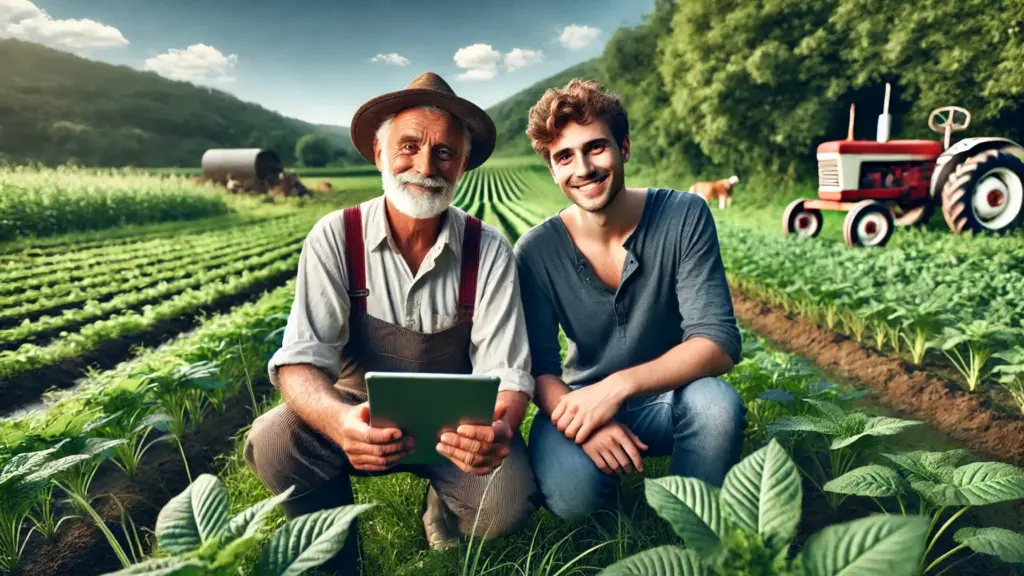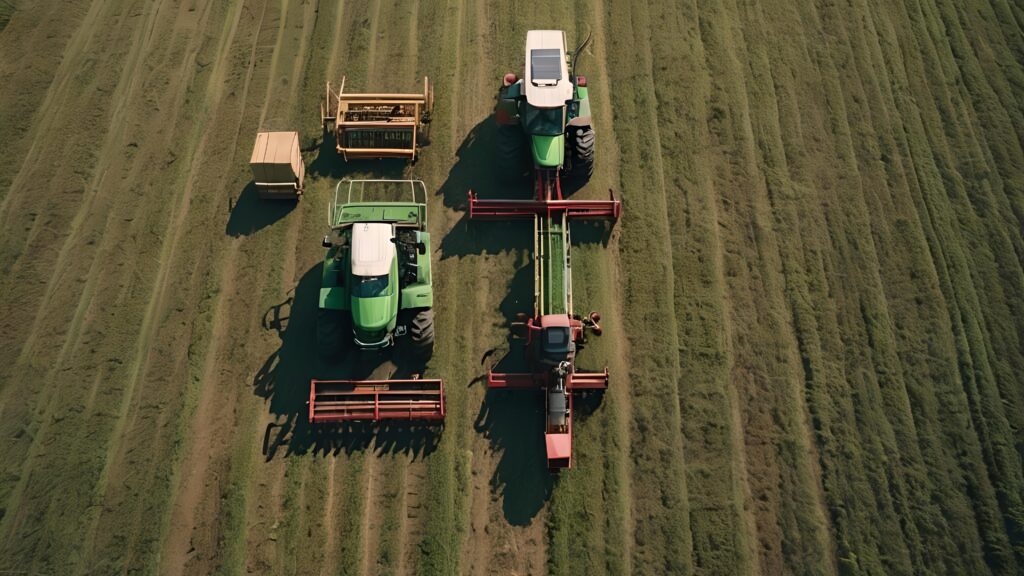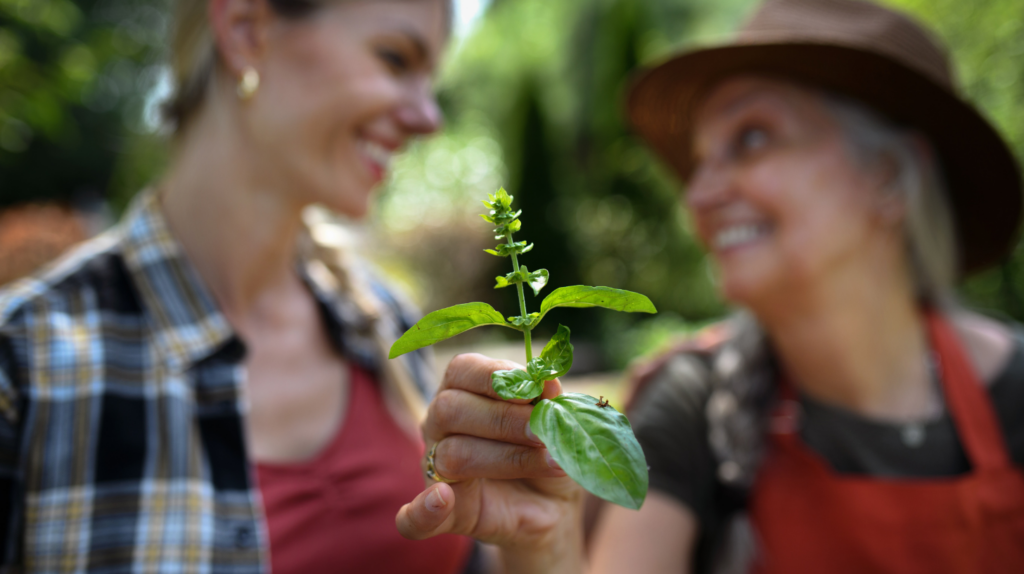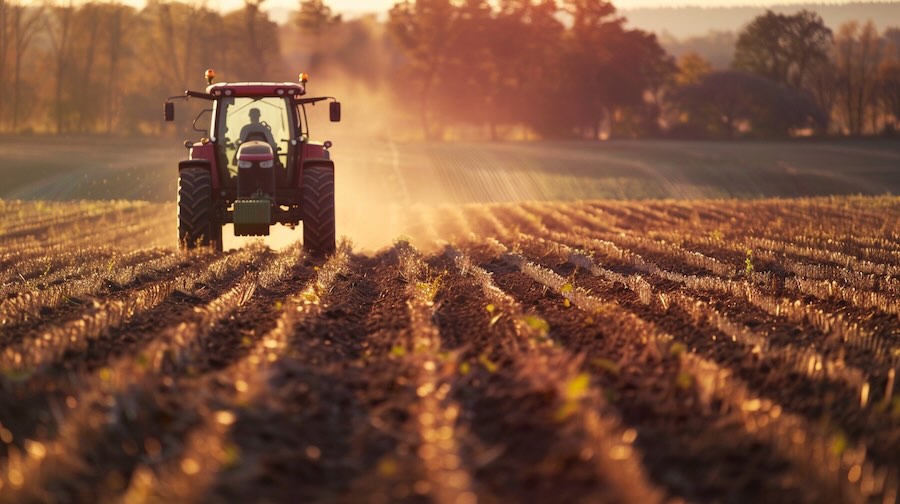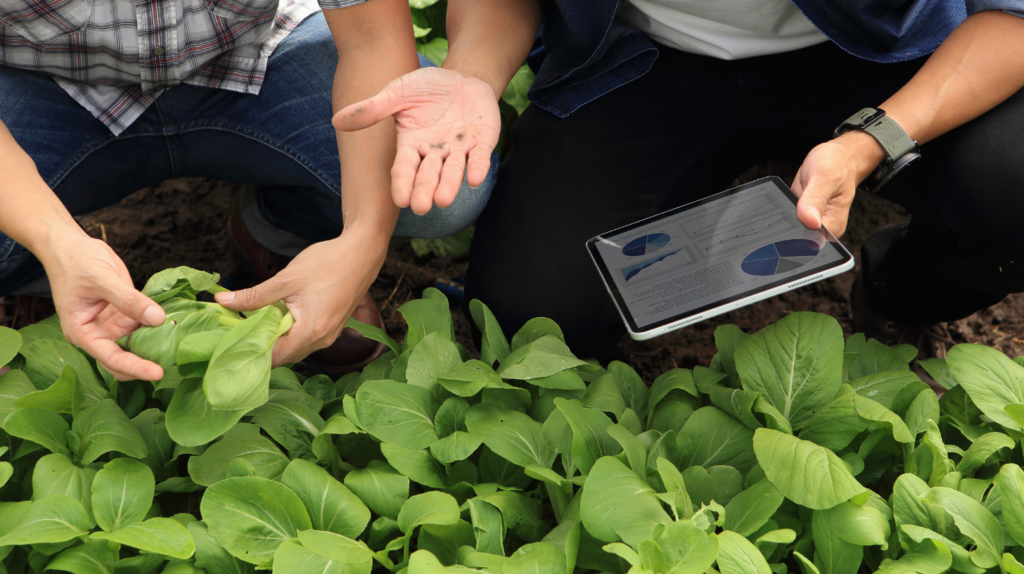“Fostering Intergenerational Agricultural Development for a Sustainable Future” post is an introduction to the EU Funded project named “Intergenerational Hub for the Amelioration of Sustainable Agricultural Practices and Entrepreneurial Mindset” with the reference number 2022-1-DE02-KA220-ADU-000085106. L4Y Learning for Youth GmbH coordinates it with the partners KMOP, Polish Farm Advisory, Citizens in Power, Challedu. Here is the home page of the project
Introduction to GrandFriend Project
Have you ever thought about the power of connecting different generations to create a sustainable agricultural future? Today, we’ll introduce you to an innovative project that does just that – GrandFriend. This initiative promotes intergenerational learning, engagement, and awareness in the agricultural sector. Also, this blog post will dive into the project’s goals, objectives, the importance of Intergenerational Programs in Agriculture, and the benefits of IPs. Lastly the involvement of Life Long Learning institutions and other stakeholders.
GrandFriend: Aims and Goals
With the UN emphasising the need to double world food production by 2050. The GrandFriend is designed to address the challenges associated with this goal. By involving both older and younger generations in the agricultural sector, the project seeks to:
- Firstly, raise awareness of the benefits of Intergenerational Programs in sustainable agricultural development
- Secondly, promote active citizenship among former Agro-Entrepreneurs
- Thirdly, boost the new generation’s engagement with Sustainable Agricultural Practices
- Lastly, address and find solutions to problems faced by different generations in the Agricultural sector
Intergenerational Agricultural Development: Importance of Intergenerational Programs in Agriculture
Intergenerational Programs (IPs) create positive interactions between two generation groups, offering a range of benefits. For instance, IPs can help close intergenerational knowledge gaps, as senior citizens often hold valuable knowledge to benefit younger generations.
Meanwhile, through GrandFriend, the project seeks to:
- Improve young people’s understanding of environmentally friendly agricultural practices
- Raise senior citizens’ awareness about sustainable food production by linking current practices to past ones
- Encourage citizens of all ages to engage in environmental matters
The project achieves these goals by creating a Pedagogical Guidebook, developing the GrandFriend Digital Game, and offering Practical Learning Modules and AgroLabs.
The GrandFriend project is an innovative approach to addressing the challenges of food production and sustainable agriculture in a rapidly changing world. By leveraging the power of intergenerational learning and collaboration, we can foster a more sustainable future for our planet.
Meanwhile, stay tuned for more updates on the GrandFriend project. Remember to share this post with your friends and family to spread the word about the importance of Intergenerational Programs in Agriculture! Together, we can create a brighter, greener future for all generations.
The GrandFriend Project Methodology
The GrandFriend project aims to promote intergenerational collaboration in sustainable agriculture and agro-entrepreneurship. It brings together older and younger generations to share knowledge and experiences, benefiting both groups and the environment. The project consists of three main work packages (WP2, WP3, and WP4) designed to achieve its goals.
Pedagogical Guidebook (WP2)
In this work package, a guidebook will be developed to highlight the benefits of Intergenerational Programs (IPs) for both new and former generations of agro-entrepreneurs. It will address problems faced by both groups. Especially during the pandemic, encourage the involvement of agricultural organisations and other stakeholders in IPs. The guidebook aims to raise awareness about the importance of IPs and facilitate knowledge sharing between different generations.
GrandFriend Digital Game (WP3)
This work package involves the creation of a digital game using Game-Based Learning (GBL) methods for adults. The game will be an Interactive Digital Storytelling (IDS) experience where players can choose and influence the story’s outcome. The game will help players improve their knowledge, literacy, and behaviour while providing an engaging and immersive experience. It will encourage learning in a non-competitive environment. In there, players can learn from tutors and gain new knowledge through various scenario paths.
GrandFriend Practical Learning Module & AgroLabs (WP4)
This work package consists of a practical learning module containing ten lessons that involve both target groups (older and younger generations) in playful, interactive activities. The module aims to break stereotypes, teach new agricultural practices, increase involvement in agro-entrepreneurship, and improve entrepreneurial skills. The lessons will lead to the development of AgroLabs, where intergenerational pairs can create agri-business plans based on the skills and knowledge they gained during the sessions. These plans can later be transformed into agri-business enterprises or start-ups, contributing to a sustainable and innovative agricultural sector.
/
In summary, the GrandFriend project uses a combination of a guidebook, a digital game, and practical learning modules to bring different generations together and promote sustainable agriculture and agro-entrepreneurship. The project aims to raise awareness about the importance of intergenerational collaboration, address common problems both generations face, and ultimately contribute to a more environmentally friendly and innovative agricultural sector.
Benefits of Intergenerational Programs in Agricultural Development
Intergenerational Programs (IPs) have demonstrated significant potential for addressing various challenges within the agricultural sector. IPs contribute to a more sustainable and inclusive approach to agricultural development by fostering interaction between different generations. Here, we will delve into the specific benefits of these programs:
Active Citizenship and Engagement
One of the primary goals of Intergenerational Programs is to promote active citizenship among both older and younger generations. By involving people of various ages in agricultural activities and decision-making processes. IPs ensure that diverse perspectives are considered, leading to more well-rounded and effective strategies.
Active citizenship fosters community, as individuals feel more connected to the agricultural sector and its goals. This engagement increases the likelihood of adopting sustainable practices and encourages long-term commitment to the sector’s development.
Intergenerational Agricultural Development: Knowledge Transfer and Skill Development
IPs facilitate the transfer of valuable knowledge and skills between generations. Senior citizens often possess expertise in traditional agricultural practices, while younger generations bring fresh perspectives and familiarity with modern technology. Through exchanging information and experiences, both groups can learn from each other and develop new approaches to sustainable agriculture.
This knowledge transfer also empowers younger generations by providing them with the necessary skills and resources to succeed as agro-entrepreneurs. It can help address the decline in interest in agricultural careers and ensure the sector’s longevity.
Addressing Intergenerational Problems
By bringing together different generations, IPs can address various challenges and problems that each group faces within the agricultural sector. For instance, senior citizens may need help adapting to new technologies, while younger individuals may need help establishing themselves, as agro-entrepreneurs.
These problems can be solved through intergenerational collaboration. And resources can be shared to create a more robust and resilient agricultural sector. This collaborative approach can lead to a better understanding of each generation’s specific needs, challenges and promote the development of targeted solutions.
Intergenerational Agricultural Development: Inclusive Learning and Social Inclusion
Intergenerational Programs foster a more inclusive learning environment, which has been shown to positively affect both younger and older individuals. IPs can help break down stereotypes and encourage greater empathy and understanding by promoting interactions between diverse age groups.
Moreover, IPs create opportunities for social inclusion and combat isolation, particularly among senior citizens. Younger and older individuals can build social connections and develop a stronger sense of community by engaging in meaningful activities and interactions within the agricultural sector. This social inclusion can improve mental well-being, increase motivation, and provide a more collaborative approach to sustainable agricultural development.
In conclusion, intergenerational programs promote sustainable agricultural development by fostering active citizenship, facilitating knowledge transfer, addressing generational problems, and promoting social inclusion. By embracing the power of intergenerational collaboration, we can create a more sustainable and inclusive agricultural sector for future generations.
Intergenerational Agricultural Development: Involvement of Lifelong Learning Institutes and Stakeholders
Collaboration Opportunities
People can involve Lifelong Learning Institutes and other stakeholders such as agricultural organisations, rural municipalities, and trainers or educators focusing on agriculture in the GrandFriend project by collaborating in various aspects. Besides, this collaboration includes developing and implementing the Pedagogical Guidebook, the GrandFriend Digital Game, and the Practical Learning Module & AgroLabs. As a result, by working together, these organisations can share knowledge, resources, and expertise, ultimately enhancing the program’s effectiveness and ensuring that the Intergenerational Programs (IPs) reach a wider audience.
Impact on Agricultural Sector
The involvement of Lifelong Learning Institutes and stakeholders in the GrandFriend project can lead to a significant positive impact on the agricultural sector. These organisations can help identify and address the knowledge gaps between the older and younger generations of agro-entrepreneurs. By doing so, they contribute to developing more sustainable and environmentally friendly agricultural practices.
The collaboration between these organisations and the GrandFriend project can also promote active citizenship among the former agro-entrepreneurs, encouraging them to share their knowledge and experience with the younger generation. Indeed, this knowledge exchange will help the new agro-entrepreneurs improve their skills, adopt sustainable practices, and develop innovative solutions to agricultural challenges.
Moreover, the involvement of these organisations can also facilitate the dissemination of information about the benefits of IPs, raising awareness among the general public and garnering support for adopting sustainable agricultural practices. Besides, it, in turn, will lead to a more environmentally conscious society and contribute to the goal of doubling world food production sustainably by 2050.
Conclusion
In conclusion, the GrandFriend project aims to increase awareness about the benefits of intergenerational programs in sustainable agricultural development and address problems faced by both new and former generations of agro-entrepreneurs. Also, by involving lifelong learning institutions, trainers, educators, and other relevant stakeholders. The project seeks to create a guidebook and develop a digital game and practical learning module to promote active civic participation and increase knowledge about sustainable food production. The project recognises that bringing different generations together to strengthen each other’s ecological awareness can benefit both sides, and improve engagement in environmental matters. By promoting intergenerational knowledge sharing and using innovative methodologies, GrandFriend aims to achieve the 2050 goals of doubling world food production while addressing concerns about environmental impacts on biodiversity, soil and water quality, and the global marketplace’s demands.
Grand Friend in Social Media
You can follow our social media channels for the latest news of the project

